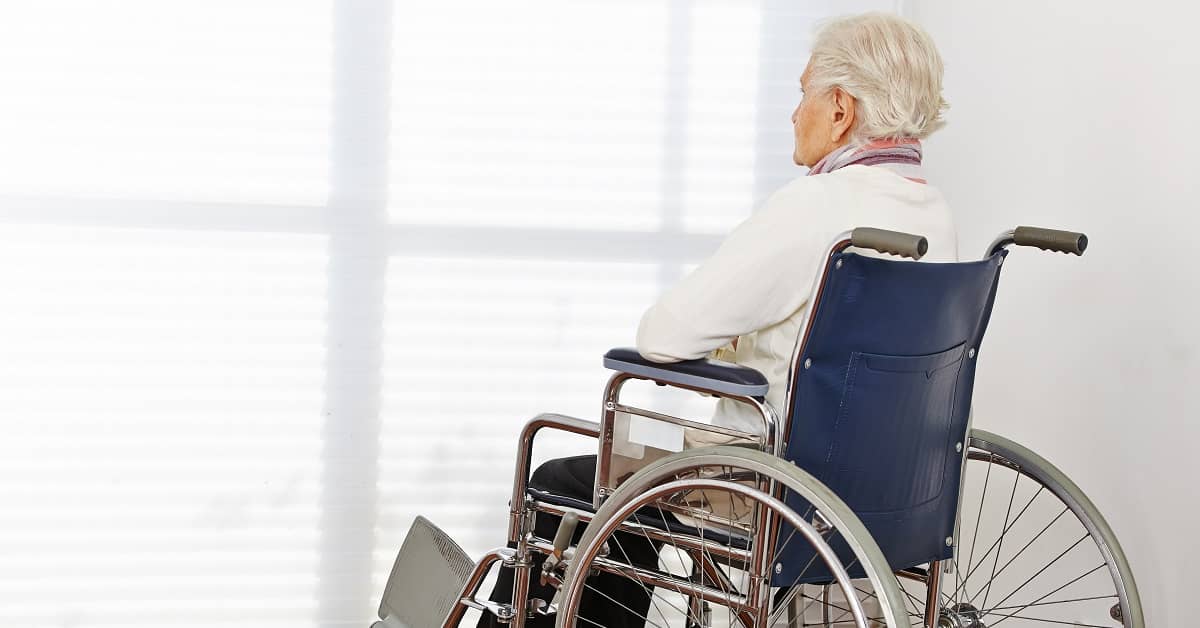
What Are the Signs of Nursing Home Abuse?
Residents and their families expect nursing homes to provide quality care in a comfortable and safe environment. We also expect nursing home administrators and staff to be professional, courteous, and capable of doing their jobs effectively.
Unfortunately, nursing home abuse is a persistent problem. Caregivers may subject residents in their charge to physical, verbal, and/or sexual abuse. Due to factors such as fear of reprisal and diminished capacity, abuse in nursing homes frequently goes unreported.
It often falls on family members to keep an eye out for abuse and take action to protect an elderly loved one. The first step is to be aware of the potential signs that a resident is being abused. Contact a nursing home abuse attorney at Maggiano, DiGirolamo & Lizzi if you observe any of the following:
1. Unexplained Injuries
The family should be notified any time a loved one is injured in a nursing home. Injuries can range in severity from scrapes, bruises, and lacerations to broken bones and more.
Although any injury in an elderly person is cause for concern, the real red flag is when the facility fails to report it or staff members can’t adequately explain how the injury occurred.
If you notice that your loved one is injured and the nursing home didn’t tell you, ask for an explanation. If you are not satisfied with the account of events, it may be time to take steps to protect your loved one.
2. Falls
Seniors often experience difficulty walking and loss of balance as they get older. This increases the risk of accidental falls.
Falls represent another gray area in nursing home abuse. Elderly residents may slip, trip, or lose their balance without any wrongdoing on the part of the staff. However, if your loved one routinely falls, this could be a sign that the staff is neglectful – or worse.
3. Use of Restraints
Freedom from physical and chemical restraints is a right guaranteed to nursing home residents. Unfortunately, staff may use restraints as a means of forcing compliance or punishing seniors.
Bedsores are a common issue among seniors who have been restrained or forced to lie in bed for lengthy periods of time. If physical restraints are used, you may also notice bruises or welts around areas such as the wrists and ankles. Changes in behavior may also occur as a result of physical restraint or the inappropriate use of medications (such as dangerous antipsychotics) as a form of chemical restraint.
4. Behavioral Changes
Any type of abuse – physical, emotional, or sexual – can take a toll on a senior’s mental health. Some nursing home residents who suffer abuse will isolate themselves, refusing to interact with others in the facility or see visitors. Others may exhibit sudden mood swings or become aggressive.
Regularly visiting loved ones in nursing homes is crucial for identifying changes in behavior. In some cases the changes are almost indistinguishable from dementia. Seeing your loved one often and being involved in their care can help determine if different behaviors are related to a decline in their health or abuse perpetrated by staff at the nursing home.
5. Sexually Transmitted Diseases
Sexual abuse in nursing homes can range from inappropriate comments to unwanted touching to rape. Although sexually transmitted diseases (STDs) may be contracted as a result of consensual sexual activity, concern is appropriate if a nursing home resident contracts an STD such as genital herpes, gonorrhea, chlamydia, syphilis, etc.
If your loved one is diagnosed with an STD and exhibits changes in behavior suggestive of trauma, this could be a sign that he or she is being sexually abused by a member of the nursing home staff or a fellow resident.
6. Damaged Personal Items
Nursing home residents have a right to security of their personal property. Issues such as torn clothing, broken eyeglasses, broken dentures, and damage to other personal effects may be a sign that caregivers at the nursing home are physically abusing your loved one.
7. Caregiver Behavior
The signs of nursing home abuse are not confined to how your loved one responds. Staff members and administrators may be rude, dismissive, or insulting to your relative – even when you are in the immediate vicinity. In some cases, the caregiver may refuse to leave you alone with your loved one.
All of these actions may be indicative of abuse. If you suspect your loved one is being mistreated, the first step is to ensure his or her safety. Your next step is to contact a nursing home abuse attorney.
How a Nursing Home Abuse Attorney Can Help
Nursing home abuse and neglect can be difficult to prove. Unfortunately, by the time families are able to take action, residents often endure unimaginable suffering. In some cases, seniors do not survive the abuse.
At Maggiano, DiGirolamo & Lizzi, we understand the challenges in nursing home abuse claims. Our team thoroughly investigates the staff and the facility, gathers evidence of wrongdoing, and pursues the compensation you and your family deserve for your losses.
Please call (201) 585-9111 today for a free consultation with a nursing home abuse attorney. Maggiano, DiGirolamo & Lizzi serves clients in Fort Lee and throughout New Jersey, as well as New York.

















